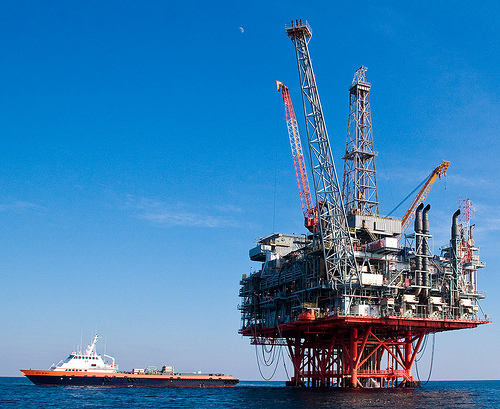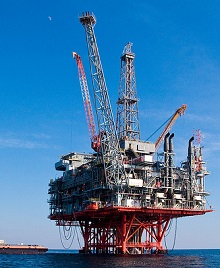
Michael T Klare in an article at Grist claims that Big Oil’s business model is broken.
I’m not so sure. An IEA (International Energy Association) update which he cites is titled A business-as-unusual outlook for oil in the medium term. Certainly there have been changes since the IEA’s World Energy Outlook 2014 (see my recent post).
Last September in the Outlook document the IEA saw oil prices rebounding, averaging $82.50 a barrel in 2015 and rising to near $100 in the coming years. Now they see prices recovering gradually to reach $73 a barrel in 2020.
The IEA now sees production as increasing by 5.2 million barrels per day over the same time period, which is substantially the same as forecast last September.
The IEA sees four main factors at play:
- Emerging economies are reaching a less oil intensive stage of development.
- The global economy is becoming less fuel intensive.
- Concerns over climate change are affecting policies, for example the fuel economy regulations for motor vehicles in the US, which Klare says will reduce demand by 2.2 million barrels per day by 20125.
- Globalisation of the natural gas market and the emergence of renewable technologies has led to inter-fuel competition beyond what would have been expected only a few years ago.
North American unconventional production (light tight oil, or LTO) has been greater than expected and has become the top source of incremental supply. Iraq supply increase is also beyond expectations.
Klare’s major point is that the oil industry assumed that demand would continue unabated no matter what the price, leading to massive investment in what he calls “tight oil” – oil from unconventional, hard to get at sources. His thesis is that production and consumption will increase, but only slowly, and to an extent and at a price that will not justify the investment necessary to extract tight oil.
The investment in tight oil dates from 2005, when production was 85.1 million barrels per day. At that time the IEA forecast that demand would reach 103.2 million barrels per day in 2015. In 2014 it was 92.9 with the forecast for 2015 only 93.2.
On the price recovery from $55 per barrel to $73 in 2020, Klare says:
Such figures fall far below what would be needed to justify continued investment in and exploitation of tough-oil options like Canadian tar sands, Arctic oil, and many shale projects. Indeed, the financial press is now full of reports on stalled or cancelled mega-energy projects. Shell, for example, announced in January that it had abandoned plans for a $6.5 billion petrochemical plant in Qatar, citing “the current economic climate prevailing in the energy industry.” At the same time, Chevron shelved its plan to drill in the Arctic waters of the Beaufort Sea, while Norway’s Statoil turned its back on drilling in Greenland.
In that sense Klare is right. Also profits like $32.6 billion in 2013 for Exxon (second only to Apple) and $21.4 billion for Chevron are unlikely to continue. Nevertheless these firms are not out of business. Some of the smaller producers in the sense of firms and countries may be, leading to possible failed states and security concerns. Russia will be producing less.
The bottom line, though, is that the crystal ball is clouded. Uncertainty prevails.


My take is that big oil is in trouble. Reasonss for countries to reduce their dependence on oil include:
Rising unrest in oil producing countries and Putin’s aggression is a major reason for countries.
Real action in the US and China to reduce emissions.
The unexpected rate at which the price of renewable energy is dropping.
Advances in the electrification of cars and the falling costs of electric and hybrid vehicles.
Moves to reduce our dependence on private vehicles.
The rising cost of increasing oil production.
Growing opposition to fracking and deep water drilling.
A smart country would be getting out of oil dependence as fast as it can.
Oil companies should see themselves as being in the energy business rather than the oil business. Klare tells of the former CEO of BP, John Browne, who back in 2002 talked about “beyond petroleum’ and the need to get into wind, solar and biofuels.
For his trouble he was eased out.
Brian: Energy businesses are not all the same. For example, the huge US oil company Arco got in into coal mining as part of an energy expansion. Its mines included Curragh where I worked in 1992.
The fact that coal and oil are both energy sources didn’t make it easy for Arco to run Curragh and the two other mines they owned in the Bowen basin. Oil and coal cultures are different and oil companies are used to spending much larger amounts of money than Australian sized coal companies. As a result, the capital cost of the Curragh operation per annual tonne product so the company was not well placed to deal with coal prices that were much less than projected. Curragh was eventually sold to Westfarmers.
Renewable energy production is even more different to oil than coal so it is debatable whether moving to renewables from oil would be a good fit. Perhaps the logical thing for oil companies to do is to switch to producing transportable fuels from renewable power. Oil and gas processing and transporting skills would be relevant here.
John, points well made, but sometimes to stay in business the culture has to change. Nevertheless the suggestion about “producing transportable fuels from renewable power” is a good one.
Brian: During the time since I started with BHP the company has changed from a big steel company (with a few small mines providing raw materials) to a big steel/big mining/moderate size oil company to a very big mining/oil company and is now in the process of splitting into a very big mine company and a big “small mine company”. Some of the problems BHP had along the way occurred because it put executives from the steel division in charge of the minerals division. (Part of the silly idea that senior management is a skill in isolation that doesn’t need experience in the area being managed.)
A key part of the big changes were take-overs where, for example, the mining companies being taken over were much larger than the BHP minerals division and where most of the leaders of the new mineral division were leaders who had worked for the mining company being taken over. (In effect the required culture is acquired by take-over.)
In the case of oil BHP started with the joint ESSO/BHP Bass Strait project and then developed into an independent oil company
A common link here is big. A core BHP skill was the setting up and operating very big projects. (BHP didn’t do so well at running small mines because it takes a different culture and skill set.)
Which is all a long winded way of saying that oil companies could change to something else if they are smart (and humble) enough to understand what has to be done to make this change. They also need to be smart enough to understand what their core skills and weakness’s are and recognize that their new leaders must come from the areas they are trying to move in to. Leaders, not consultants.
My experience with ARCO and the coal industry makes me wonder if they will, in fact, survive.